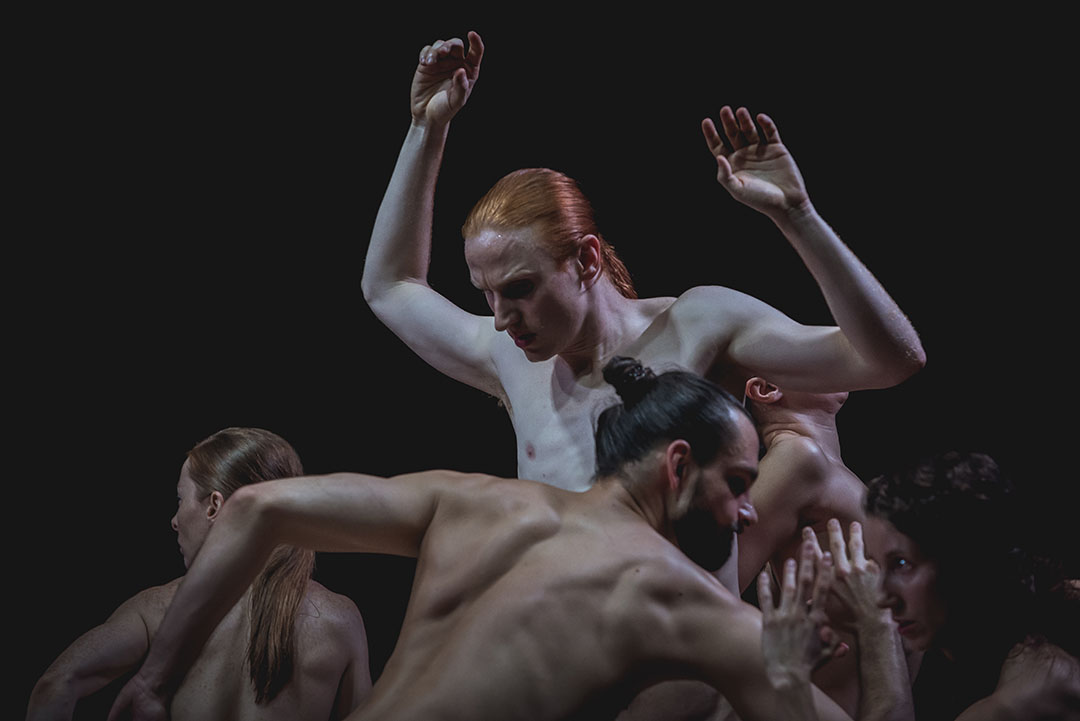A homage to the ancient Greek tradition of athletics competitions, Glory Game opens with six naked dancers in position, waiting for the starting gun. Almost imperceptibly they begin the race, moving inch by inch, from left to right and back again across the stage. The imagery is striking, almost cinematic, and the slow motion only adds to the intensity of the competition. As they progress, the layering of arms, legs and bodies forms a moving sculpture against the black backdrop.
Piece by piece, the dancers put on a variety of sports costumes concealed within the white sandy floor. We witness the facial contortions of medal winners as they move from ecstasy to agony, and a number of props (a spade, a discus, a surfboard) are gradually introduced. Although the pace remains the same, it feels like a descent from Olympus into gimmickry, and the lure of melodrama obstructs the powerful simplicity of the premise.
Greta Bourke
Six nude bodies take up position at a starting line on the edge of a large white square of sand. Instead of a sprint they launch into suspension, moving in slow motion as if in a photo finish replayed on an endless loop.
The scene is minimal, yet powerfully evocative. They resemble athletes etched onto a Greek vase, limbs interwoven, muscles tense. One person’s shadow dancing across another’s skin – at once beautiful and threatening. They’re catching up, about to overtake. Be the better body, win the medal. Get the role in a performance, get booked. Like an athlete, the performer’s body is suspended in a perpetual state of competition.
As previously concealed clothes are pulled from the sand, and props take their place on stage, the interpretative openness of the first half begins to narrow. Poetic ambiguity gives way to an ironic theatrical self-awareness. The dancers clash, kiss, and hold up a sign proclaiming ‘Watch it in slow motion’. If only choreographer Dominik Więcek allowed us to construe Glory Game on our own, it would have retained its momentum.
Zala Julija Kavčič
In Canada, we have a test called the VO2 max – a relentless run back and forth to evaluate heart and lung capacity. The first segment of Glory Game reminded me of that: a non-stop, slow-motion race across the stage. Watching a single body created illusions; focusing on one dancer meant missing the creature-like group moving in surreal unity.
As the beat quickens, the order fractures. A new race begins: dancers scramble to uncover clothing hidden in a rectangle of white sand, later revealed to be a massive canvas. The lighting is crisp, almost crude, exposing every grain of sand and every bead of sweat.
Passions flare – kisses, battles over hats, struggles for dominance – against the relentless slow rhythm. Despite the pace, action floods the stage. I was left with the feeling that, like a sports replay, I wanted to roll the tape back again and again like sports enthusiasts do for their favourite play of a game, never catching everything the first time.


